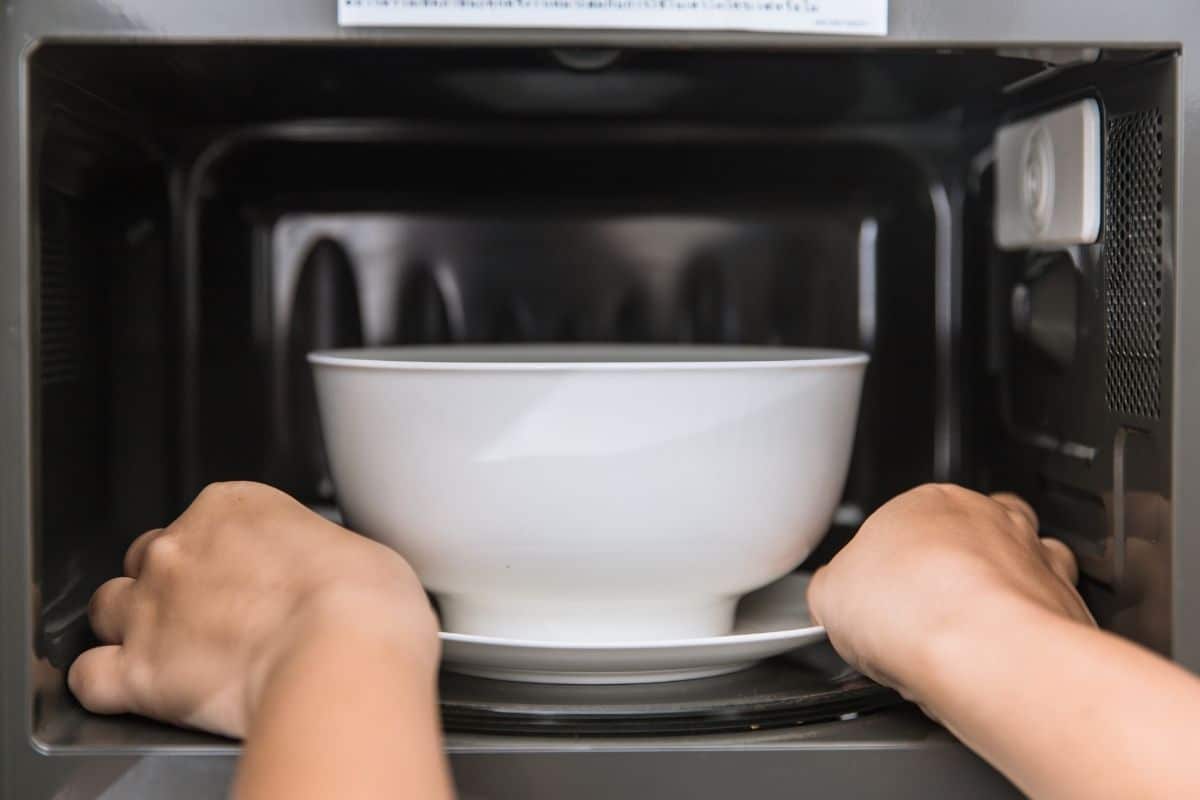Yes. In a microwave, you can boil water. The microwave has become a very significant device in many houses since its creation in the 1940s. It is well-known for the variety and ease with which it may be used in the kitchen. While there have been debates about the microwave's safety, particularly in boiling water, the solutions to these problems have remained ambiguous.

We'll look at whether boiling water in a microwave is safe, how to do it, and the necessary safety precautions in this post. Without the proper respect for the microwave's ability to heat the liquid, you may get burned, so follow the instructions carefully. Take a look and make sure to read all the precautions.
Safety of Boiling Water in the Microwave
Microwaves generate heat by moving electromagnetic waves quickly and causing friction between water molecules. Additionally, microwaves may heat water to the boiling point, according to a study on how different microwave temperatures alter the characteristics of water. They use electromagnetic waves to heat water molecules at random places. If the water is not heated long enough, pockets of boiling water can form behind a layer of cooler water.
As a result, it is critical to stir the water before use. When boiling water in the microwave, you should also use microwave-safe cups. If possible, use any other method such as a stovetop or an electric kettle as they offer better temperature control. Although boiling water in a microwave is simple and convenient, there are certain things to keep in mind.
Complications and Cautions
Boiling water, or any liquid, in a microwave can cause to have pockets of heat that are not stable which can lead to burning quickly. Spilling boiled water on yourself can cause severe burns and agonizing pain. When taking water from the microwave, use hot pads to protect your skin from burns.

Only use the microwave to boil water in acceptable containers. Both plastic and glass can be dangerous for boiling liquid. It's also worth mentioning that metal should never be microwaved.
Burns can also be caused by steam vapor. As a result, use caution and avoid placing your hands directly over hot water until it has cooled slightly. Make sure you are familiar with your microwave's power output, settings, and appropriate containers by reading the directions carefully.
Never use a cover over the container of water as this can build up hot steam and create a harmful explosion. Do not use sealed plastic bags either or anything else that does not give the steam access to move. You can, however, place a microwave-safe item in the water (not metal) to prevent super-heating. A wooden spoon, chopstick, or even a popsicle stick can allow for bubbles to form and prevent the super-heating. Of course, the item will be extremely hot and require extra care when removing it from the microwave.
Do not let the water heat for long periods of time. If you are concerned about a super-heating disaster while boiling water after reading the advice in the preceding section, do not be. There is more you can do to keep yourself safe. For example, one of the most important things you can do to avoid super-heated water is to avoid heating it for long periods of time. It is impossible for water to become super-heated if it is not heated past its boiling point.
How Long To Boil Water In A Microwave
Microwave the water in intervals so you can stir the water and prevent super-heating. Allow it to cook for a minute to ninety seconds and then stir until the water steams. Even if these instructions are followed, bubbling may not be as noticeable as it would be on the burner. Using a thermometer to confirm the water is boiling is the most accurate method.
If you're using a heat-resistant container (such as glass or ceramic), be careful when stirring the water out of the microwave. As you handle it, use a cloth or a potholder to protect yourself against burns. Never get your face close to the water as this is very dangerous. Furthermore, tap the side of the bowl to disperse the heat for extra safety.
The length of time you should limit your microwave heating sessions depends on the power of your microwave. To begin, limit your heating to a single one-minute period to be safe. Then, you can modify your next heating attempt based on how hot the water gets from the first one. Finally, avoid smooth containers; instead, choose ones with ridges or scratches to allow bubbles to form.
Conclusion
Microwaving water to boil is both convenient and safe if you follow the right steps and precautions. Microwaves are great for heating tiny amounts of water since they can disperse heat unevenly. Boiling water takes approximately 1–3 minutes on average. However, it will be determined by the microwave's capacity or wattage. To figure out how long it will take to heat the water to boiling temperature, you'll need to know how much wattage your microwave can produce but never go over four minutes.




